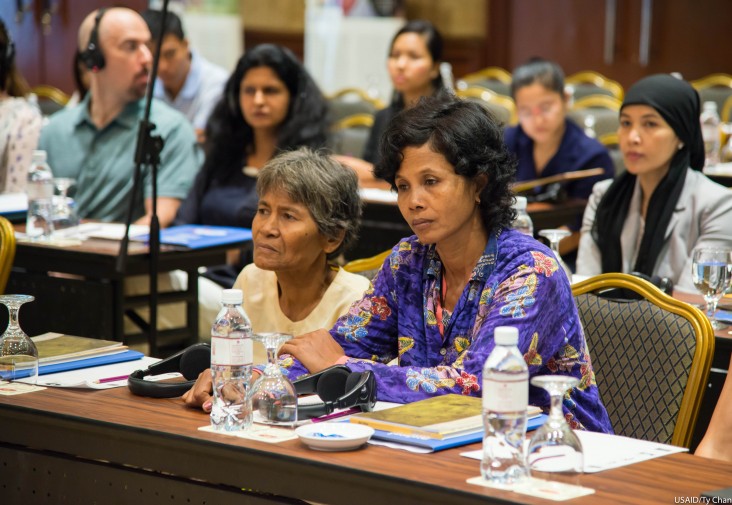
(as prepared for delivery)
- Dr. Chhim Sotheara, Executive Director of the Transcultural Psychosocial Organization
- Chariya Om, Project Coordinator of the Transcultural Psychosocial Organization
- Distinguished guests and colleagues
It is a great honor to be here with you today for this important event. I would like to thank TPO for organizing this project launch and for inviting me to say a few words.
As we all know, Cambodia has suffered through many painful years of civil war, including – but not limited to – the almost unimaginable atrocities committed under the Khmer Rouge regime. During those dark years, more than 1.7 million Cambodians died from starvation, forced labor, torture, and execution.
Why do these atrocities matter to us now in 2017? As my friend Youk Chhang has reminded me there is no better teacher than the past. The effects of the Khmer Rouge regime still linger for many Cambodians who lived through that terrible period. After four years living and working in Cambodia, there are two memories that come to mind. One is the collection of experiences told to me by Cambodians who lived through the Pol Pot era and the other memory is of the field visit I took to Kraing Ta Chan to observe TPO’s activities. It was there that I realized that atrocities committed under the Khmer Rouge have had a devastating impact on Cambodian society, particularly in the psychological realm.
Current estimates indicate that 14.2 percent of Cambodian adults 35 years old and older suffer from some form of post-traumatic stress disorder – a figure nearly six times higher than that of the United States. It is estimated that intergenerational trauma - that is trauma passed on from parents to children - is rampant. Cambodians 35 and younger– most of who are too young to have remembered the Khmer Rouge – also suffer from abnormally high rates of PTSD.
As you can see, mental health needs in Cambodia are great. This is what makes the work of TPO so important. In the context I just described, promoting trauma healing for individuals and communities who experienced torture during the Khmer Rouge regime is vitally important. TPO - in collaboration with Kdei Karuna Organization - is leveraging its substantial experience to bring justice and healing to affected individuals. This project underscores the U.S. government’s commitment to supporting transitional justice in Cambodia. As part of our transitional justice portfolio, we also support the Documentation Center of Cambodia and the Khmer Arts Association to promote education, justice, memory, and healing.
The Documentation Center of Cambodia promotes national peace and reconciliation through the preservation of Cambodia’s Khmer Rouge era historical records. The Khmer Arts Association does this through theatrical performances, oral history presentations, community dialogues, and mobile exhibitions. Together USAID and the consortium will raise public awareness of the impact of gender based violence on contemporary society. Both projects directly support the aims of the Extraordinary Chambers in the Courts of Cambodia. The ECCC is currently trying the crimes against humanity and war crimes alleged against the most senior living leaders of the Khmer Rouge regime. We are excited that both DC-Cam and KAA have partnered, and continue to partner, with TPO in these vitally important areas.
On behalf of the U.S. government, I want to thank the Royal Government of Cambodia for the leadership and recognition of the importance of dealing with mental health issues resulting from the Khmer Rouge era. These groups enjoy excellent relations with the government of Cambodia and we are proud to support them.
I am excited that today’s launch will highlight the wonderful work that TPO has been doing. I wish you continued success as you work to promote national reconciliation in Cambodia.
Thank you.
Related Speeches
- Remarks by Polly Dunford, Mission Director, USAID Cambodia, Launch Event of Feed the Future Cambodia Harvest II
- Remarks by Christina Lau, Deputy Director, Office of Public Health and Education, USAID/Cambodia, Opening Ceremony of the Kick-Off Workshop for “One Health Workforce”
- Remarks by Veena Reddy, Deputy Mission Director, USAID Cambodia, EPIC Showcase







Comment
Make a general inquiry or suggest an improvement.